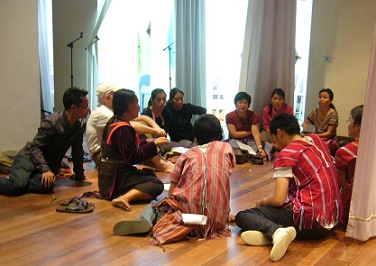LESSON
Lesson Learned: Civil Society Engagement for Democracy and Good Governance
There was a multiplier effect among the volunteers who were trained. They were in a position to drive further citizen participation following the end of the project. In particular, the women who participated in training sessions will ensure future awareness raising within their communities and women’s associations.
Project Partner
West Africa Network For Peacebuilding - Côte d'Ivoire
Project Description
The main focus of the project in Côte d’Ivoire was to put in place five departmental committees and one national committee for the monitoring of democracy and good governance. By strengthening the capacity of the members of these committees, the project promoted voluntary involvement in the management of communes and the exercise of civic control. By relying on the country’s policy of decentralization, the project helped local populations develop an interest in governing local affairs through learning about their roles as citizens. This was done through cooperation and engaging in dialogue with locally elected leaders.
With this project the grantee integrated strategic priorities of the national decentralization policy into local governance. It also managed to take into account the context of the Ivorian crisis, which was characterized by a weakness of democracy and poor governance. It was therefore a kind of post-crisis pilot project on raising awareness and approaches to training in democratic education and good governance. The project could have applied a more nuanced approach in relation to the different groups that were part of the target population, particularly women and young people and provided more local support.
Report
Evaluation Date
January 2013
Theme
Country
